Online Trading Scams in Europe Surge as 1,400 Sites Shut
Abstract:European crackdown removes 1,400+ fraudulent trading platforms, exposing AI-built fake broker networks and cross-border call centers targeting investors.
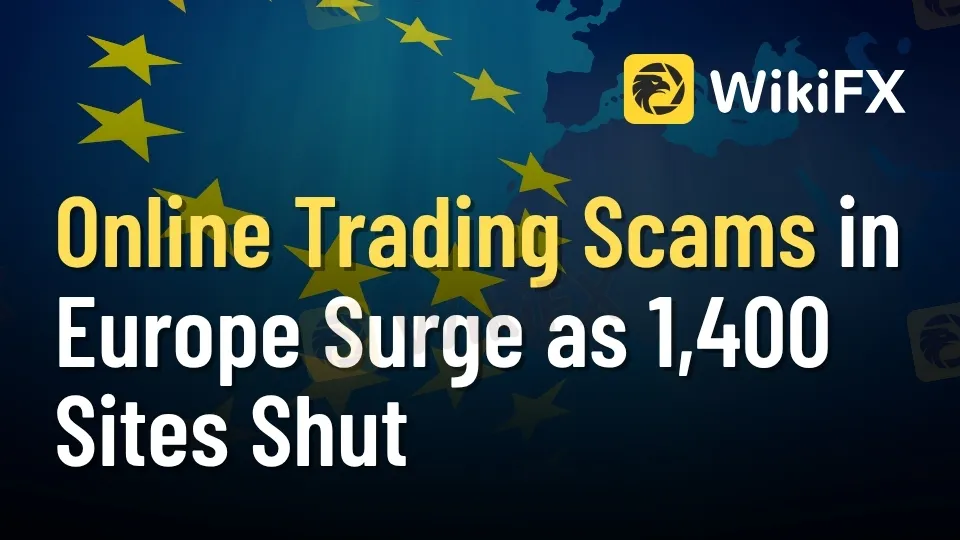
Online trading scams in Europe are organized fraud schemes that use fake broker platforms, call center sales scripts, and AI-generated websites to solicit deposits from retail investors and then block withdrawals or disappear entirely. These schemes matter now because European authorities have just dismantled more than 1,400 illegal domains linked to investment fraud, revealing industrial-scale infrastructure, AI misuse, and cross-border call center operations that persist despite repeated takedowns. This report defines the threat, details current enforcement and trends, and explains the broader impact and what to watch next for investor protection and policy.
What the Scams Are
Online trading scams in Europe typically pose as forex, crypto, or stock brokers, funneling victims from polished domains to aggressive call centers that push large deposits with promises of high returns and “AI-driven” strategies. Many victims discover months later that funds were never invested; platforms block withdrawals, shut down, or demand new payments to unlock balances, a pattern seen repeatedly in Europol- and Eurojust-supported cases. German regulator BaFin reports at least 20 nearly identical AI-branded websites with minimum deposits of €250, none licensed, none with verifiable ownership, illustrating mass-produced fraud templates.

Why it Matters Now
In October 2025, German investigators with BaFin, Europol, and Bulgarian authorities dismantled over 1,400 illegal domains in “Operation Heracles,” following a June 2025 action that blocked about 800 domains; authorities counted roughly 20 million subsequent access attempts, underscoring persistence and scale. Officials say perpetrators increasingly use AI to spin up convincing clone sites at speed, materially raising the baseline sophistication and volume of fraudulent trading platforms. Europol continues cross‑border data work to trace funds, identify call centers, and disrupt payment facilitation, reflecting the scams transnational nature and need for coordinated enforcement.
Broader Impact and Outlook
Victim recovery remains uncertain because many call centers operate from jurisdictions with weak cooperation, limiting asset seizure and restitution despite infrastructure takedowns and digital asset seizures where possible. Regulators are intensifying public warnings about unauthorized investment services, finfluencer promotions, and AI-branded trading offers, linking the threat to wider retail investor protection and digital asset fraud risks. Expect more infrastructure-focused operations, faster domain churn by fraudsters via AI tooling, and continued pressure for stronger payments due diligence and cross‑border financial crime frameworks in the EU.
Expert Insight
BaFins executive Birgit Rodolphe notes that fraudsters are “becoming increasingly professional,” using AI to mass-produce illegal sites that lure investors, aligning with observed clone-site clusters and €250 on‑ramp patterns. Field experience from Europol-supported actions shows that disabling hosting, seizing servers, and tracing facilitators can weaken networks, but sustained deterrence hinges on closing payment channels and targeting call center hubs. For retail investor protection, verifying authorization in official registers and distrusting guaranteed-return “AI” pitches remain the most reliable first-line defenses against fake forex and crypto brokers.

Read more
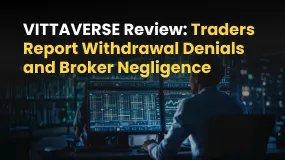
VITTAVERSE Review: Traders Report Withdrawal Denials and Broker Negligence
VITTAVERSE carries the tag of a fraudulent forex broker as traders continue to criticize it for many of its operational flaws. This includes the usual profit withdrawal denials, profit deduction, no response from the customer support team, and even deposit withdrawal denials in some cases. Are you one of its traders facing these issues? You can easily resonate with many trading complaints against the broker online. Let’s check out all that in this VITTAVERSE review.
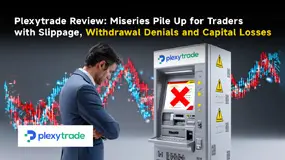
Plexytrade Review: Miseries Pile Up for Traders with Slippage, Withdrawal Denials and Capital Losses
Failed to maximize your trading experience at Plexytrade because of the heavy forex slippage issue? Have you been constantly hearing NO on your withdrawal requests raised with the Saint Lucia-based forex broker? Do broker officials provide you with inexplicable reasons for withdrawal denials? Feeling stuck in your trading? These experiences have shaped many of your fellow traders’ negative reviews of this forex broker. Read this article further to check their reviews.
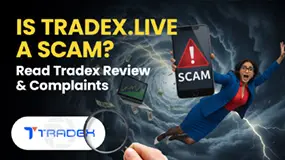
Is Tradex.live a Scam? Read Tradex Review & Complaints
Many real users have labeled Tradex.live as a fake platform, while others describe the app as completely useless. Some claim that it operates based on its own rules and lacks proper regulation. If you're involved in the forex market, it's important to read this Tradex review to determine whether the platform is a scam or safe—so you can protect yourself from potential fraud.
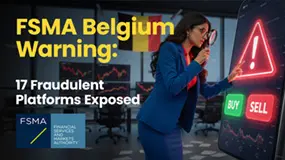
FSMA Belgium Warning: 17 Fraudulent Platforms Exposed
Financial Services and Markets Authority (FSMA) of Belgium has issued a warning regarding 17 fraudulent online trading platforms. These platforms have been identified as operating without proper authorization and are suspected of engaging in deceptive or illegal practices. Below is the full list from FSMA Belgium warning
WikiFX Broker
Latest News
FCA Warning list 2025: Unauthorised firms to Avoid
Traders Report Fund Scam & High Slippage at TD365: Read What They are Saying
Bank of America says investors are ignoring one major stock market risk
FCA Cracks Down on £1m Ponzi Scheme in UK
Want to Trade Via Daicha Iconic Markets Ltd? Wait and Read This Review First!
WikiFX Warning: 5 Scam Brokers Exposed in October 2025
How to Spot a Forex Scammer Before You Invest
Freedom24 Review: License and Regulation
Online Trading Scams in Europe Surge as 1,400 Sites Shut
FSMA Belgium Warning: 17 Fraudulent Platforms Exposed
Rate Calc

